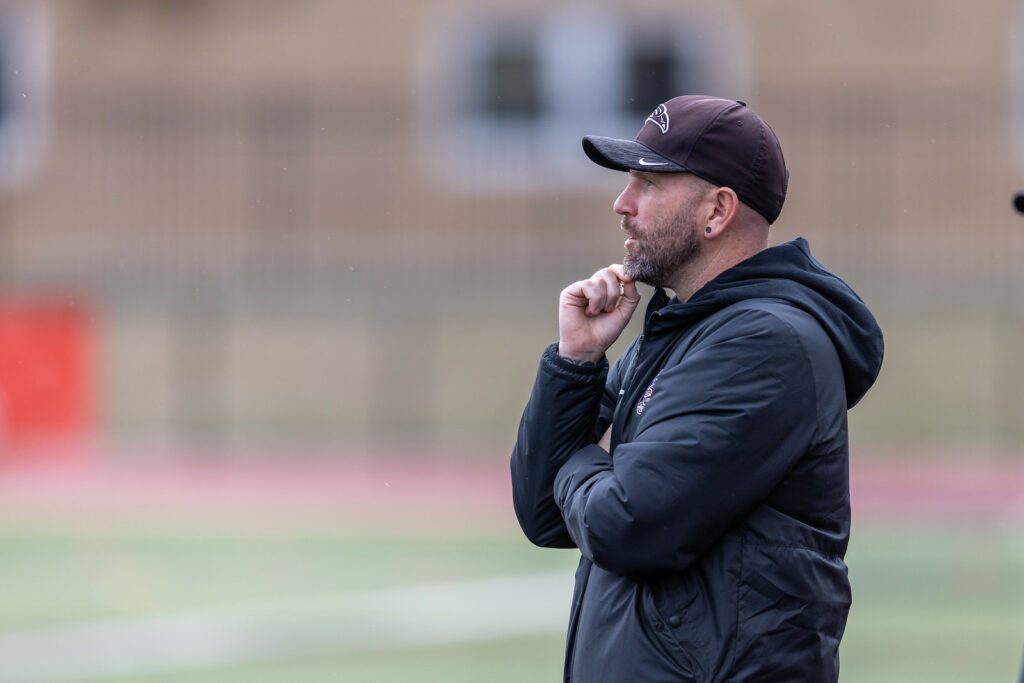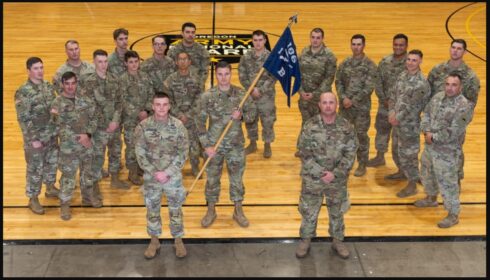Photo Credit Bob Palermini, www.palermini.com
Advice for coaches and athletes, Davie finding his way to coaching, his personal career, building a culture, and moving towards next season.
David Carmichael grew up in Glasgow, Scotland. His career first started when he played for a professional organization at 16 years old with a signed contract that didn’t release him until around 18 years old. Not having much of a high school education, Davie got picked up by an ex-professional soccer player who wanted to start a small program that promoted young student-athletes to go to college in the U.S. Davie eventually made his way to the U.S. for a college education and to continue his soccer career. He first went to Cleveland State University in Ohio, but eventually transferred from the D1 program to an NAIA program at Notre Dame College, and graduated from there with a degree in sports management.
Davie’s coaching career didn’t start right away. He first went back to Scotland to work as a consultant recruiter with the company that helped him play overseas in the U.S. Then, missing the atmosphere of the game and the connections he had made in the U.S., he came back to the states to coach. His coaching career first started as a graduate assistant at a D2 program, and during this time he received his masters degree. He then moved to the University of Buffalo as an assistant, but the head coach left and allowed Davie to become the head coach of a D1 program young in his career. However, after meeting his wife and wanting to move closer to the west coast, Davie ended up becoming an assistant at Cal Poly for a year before the opportunity at Southern Oregon University opened up. Davie has been at SOU for four years now and he hopes “to be here for many more.”
Connecting all these different coaching positions and experiences, one thing Davie took away from these different roles “was finding somewhere that you believe in,” especially when taking the position at SOU. Davie said, “when I looked at Southern Oregon, I looked at the league, the success of other programs, and looked at what resources we had and I realized this is somewhere we can grow in and build something into a national contender… so rather than just taking a job because of the division or the level, find somewhere that you know, where you think you can grow as a coach, and grow the program to a level that’s really successful at the national level.”
From these unique experiences, there comes challenges. Davie’s biggest challenge involved taking over a program as a head coach and developing his coaching philosophies. “I think that my biggest challenge was trying to build that platform for the program and take care of who I was as a coach…I managed to learn who I was and figure out how I was going to do things and learn from my mistakes.”
These mistakes helped Davie learn what his coaching philosophies were and what kind of culture he wanted to instill into programs, like the men’s team. Some of the core values of the team, like Davie, states, “making sure that they’re invested and understand what it means to be a student-athlete and making sure that diversity and inclusion is a big part of that… we build our values and ability we are together as a team… integrity has been the been the biggest part of making sure that we’re working hard, making sure that we have a good work ethic, and that we’re looking after each other.” The men’s program takes pride in instilling a good culture, but it also takes pride in things outside of the sport.
Davie highlighted, “I’m very proud of our guys in terms of their investment on campus. We get really good feedback from professors, sometimes through our athletic director…there’s also been a few projects we’ve been involved in terms of servant leadership and giving back to the community…we take pride in what we’re doing and try to get the best grades in [we] possibly can… we have a program culture that respects the game, respects teammates, the coaching staff, the opposition team, and coaching staff.” So, when asked about the team culture, Davie replied, “understanding that within your setbacks, we have to stay resilient, we have to stay organized, and we have to stay together. So, I think culture is one of togetherness, making sure that we’re ethically strong and strong from an integrity standpoint. We don’t take shortcuts and we don’t cut corners, and we’re invested for all the right reasons.”
And the men’s team is no doubt moving forward with integrity in mind, with the team hitting the weight room regularly. Then, come January and February, gearing up for spring, the team will translate the work from the weight room out onto the field. Also, reflecting on this year’s season gave some great insight. Davie mentioned that “the big thing for us this year was just trying to seize the moment, enjoying, and giving gratitude to be there every day… so we will stay focused on just the process of getting back to who we are and building identity again.”
Giving advice to younger generations is also an important aspect of sports and building strong athlete characters. When asked to shed some advice for the younger athletes, Davie said, “invest yourself and be smart about what you’re doing… if you want to play college, be professional about presenting yourself… Also, really love every moment like it’s your last season… really invest yourself and be the best you possibly can be in every aspect: diet, sport, family, academics.”
The interview ended with a spotlight question:
M: If you could hang out with a celebrity for a day, who would it be and why?
D: 100% David Beckham, without a shadow of a doubt. He was my idol growing up and I kind of modeled my game on his game… [I’d] study his mindset… he wasn’t the most talented player, but I think he was certainly someone who made the most of his career and talent he did have.



